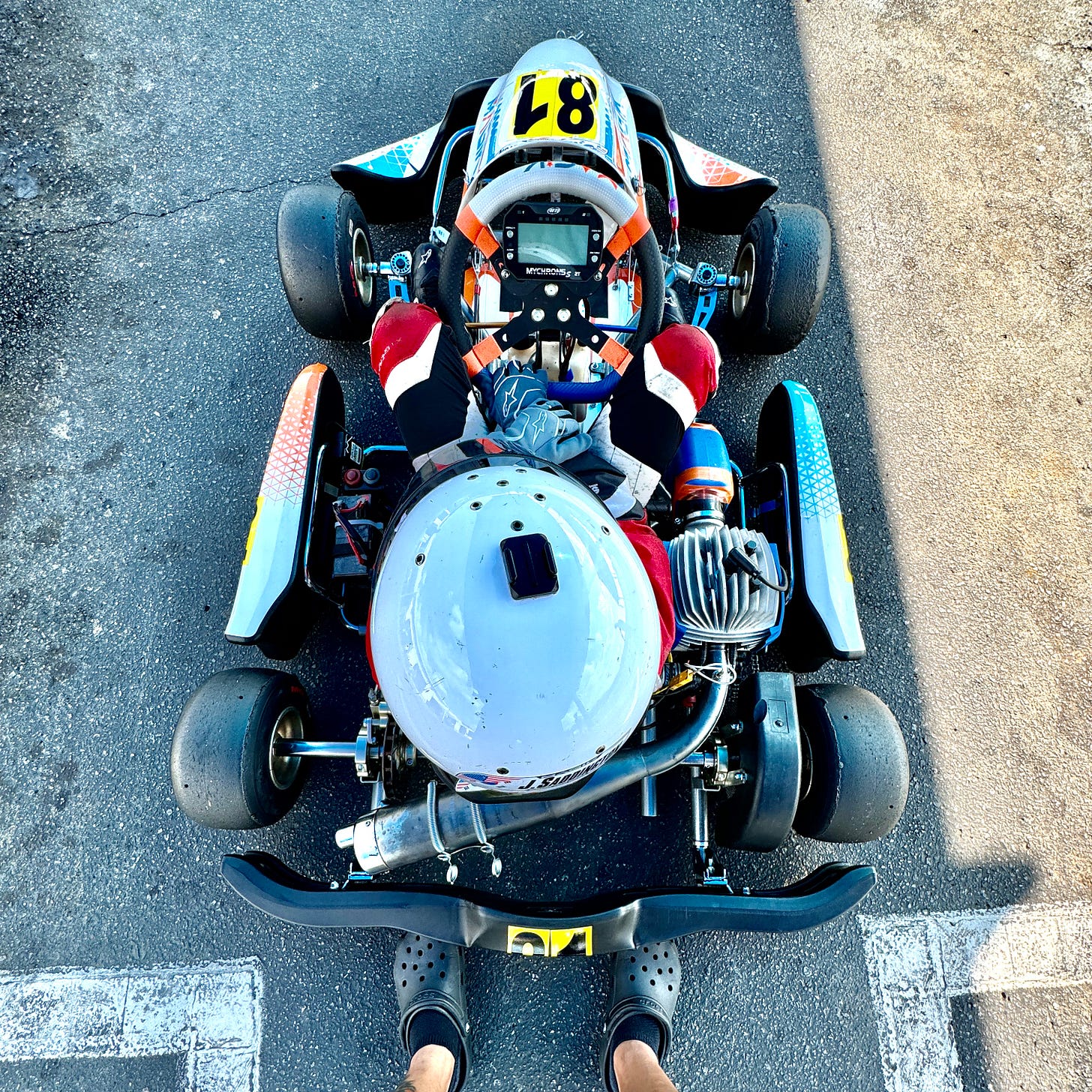Whenever I am at the race track working on the car, it is usually a [deep focus] situation. My face is scrunched with RBF, my movements are swift and precise. Time is not my friend. I have to rebuild this chassis, change the setup, or dial in the engine… all within a 45 minute time-box to get my driver back out onto the track to test.
These ‘sprints’ fly by as I take moments to check on the time. These pressure-cooker moments test my muscle memory, stretch my knowledge-base, and provide one of the most gratifying feelings when it’s all done and the changes [work] on the track.
Rarely am I in conversation or talking to anyone. Focus. Deliver. #agile #scrum
Luck Would Have It…
This past race weekend was the [lightest] weekend I’ve had in a long time. Everything just worked. My 6-hour breakdown and full clean the previous day always helps.
This weekend, however, my time was spent mostly cleaning everything since the setup was solid… and I ended up spending a good 35 minutes or so discussing ‘luck’ with another dad constructor.
I’ve never believed in luck. As a data scientist, my brain doesn’t operate like that. To me, luck is simply a [mathematical probability consideration]. To me, luck is simply a function of preparedness and discipline over time:
Discipline yourself in your craft. Mastery over time.
The more you grow in competence and skills, the more doors open up.
By disciplining yourself to your art/craft/profession you are simply [increasing] the [probabilities/chances] of engagements that are fruitful to your journey.
My esteemed constructor-dad saw it much differently. He believes that ‘luck’ isn’t a function of skill or discipline or competence. I was intrigued! I wrote down high level bullet points in my notebook for engine-data:
Luck is often perceived as random, but it can be influenced by awareness and observation.
Being observant increases the chances of noticing opportunities that others might miss.
Observant people are more likely to recognize patterns and trends, making them "luckier" in decision-making.
By observing more closely, people can anticipate outcomes and position themselves to take advantage of favorable situations.
Summary: Luck (to him) is a function of observation because being aware and attentive helps individuals recognize and seize opportunities that others might overlook. This heightened awareness can make a person appear "lucky" as they are better prepared to act on the chances they observe.
Compromise or The Same?
Where we met in the middle was this point:
Luck favors those who are prepared, and observation is a key part of preparation.
Taking it a level deeper, we agreed that the ‘luckiest’ people have a mental model of either:
observation or
disciplined preparation
Regardless of model, both avail very similar results:
You are open to new opportunities and people.
You are bold enough to try.
Fortune favors the bold.
Mindsets we hold shape our reality.
Low expectations become self-fulfilling.
You trust your intuition/gut/logic.
Joy in the attempt, not outcome.
So, is luck a function of competence or observation?
Do we make our own luck?
I’m curious.
How do (you) make your own luck?
What do you do to improve your chances?
I’d love to know.
All the best,
ps
Listen to this post here:
https://www.spreaker.com/episode/is-luck-a-mindset-of-observation-or-discipline-over-time--61261444




"Luck" - is a blend, and none of these perceptions are wrong.
I agree that being more aware, observant helps one identify opportunities. I also agree that hard work and discipline, and "doing better" creates better outcomes. Results are an outcome of action. One can't sit by and "luckily" achieve something.
Choosing to live with a positive zest for life...consistency, persistence, resilience, and adaptability lead to where both perspectives can thrive...and create their magic...paying homage to the this well known saying: "Success is when preparation meets opportunity."